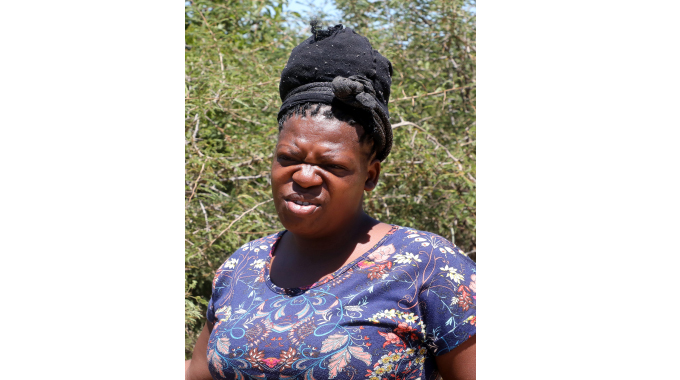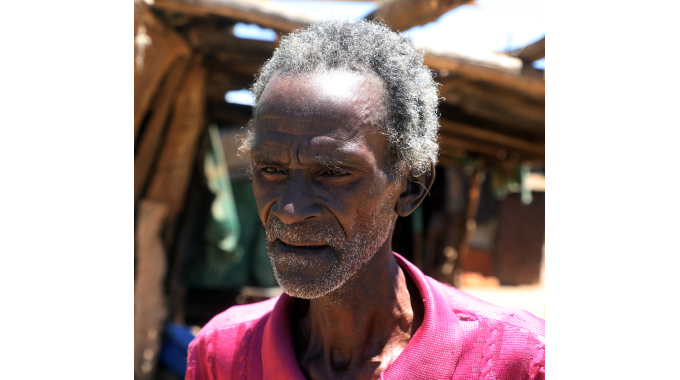The Chronicle

Nqobile Tshili, Chronicle Reporter
KILLARNEY Squatter Camp in Bulawayo has not recorded any Covid-19 cases since the outbreak of the pandemic in March 2020.
Zimbabwe has recorded more than 233 000 Covid-19 cases since the outbreak of the pandemic in the country resulting in the death of over 5 000 citizens. Bulawayo has recorded more than 20 000 cases and nearly 850 deaths.
 Ms Shelly Mlauzi
Ms Shelly MlauziSlums are generally considered hotbeds for the pandemic as their dwellers live in crowded homes with no running water.
Killarney Squatter Camp is no different as it is tucked just after the leafy houses of Killarney suburb with most dwellers living in mud and pole houses. Their homes have no running water and are overcrowded with more than seven people sharing a room.
A Chronicle news crew visited the slum yesterday and was welcomed by scores of children who were playing in the compound. Both children and adults were not wearing masks and a group of men was seen drinking opaque beer.
But surprisingly the area is yet to record any Covid-19 case despite health authorities saying their area could be prone to the pandemic.
Residents claim frequent testing is conducted but none of them has tested positive since March 2020. However, health officials say some of the camp dwellers might just be recovering from Covid-19 untested.
Children quickly directed the news crew to the compound leader and “village head” Mr Tony Ndlovu, who said that the area has not registered any case or Covid-19 related deaths.
 Mr Tony Ndlovu
Mr Tony NdlovuMr Ndlovu (69) said when they first heard about Covid-19 in 2020, they thought the pandemic would mark their demise.
He said their living conditions and lack of running water made them believe that once one of them is infected, the whole compound would be affected.
“But almost two years since the outbreak of Covid-19 we have not recorded any Covid-19 case in this compound. And we attribute this to the fact that people in this area are conscious of their conditions.
We live in crowded homes so the fear is that when one person is infected, all of us will be infected. So, I guess this is what has made most of us follow Covid-19 prevention measures,” said Mr Ndlovu.
He defended the slum dwellers saying there was no need for them to be putting on their masks since they were home. “We only wear masks when we are interacting with the outside world,” said Mr Ndlovu, who did not have a mask on.
“Those are the people who can bring Covid-19 to us. We have been tested for Covid-19 several times and I’m confident that no one has contracted the virus.
There is a mobile clinic that usually comes to test us and even we have received Covid-19 jabs. So, during those tests no one has been confirmed to be Covid-19-positive.”
He said some the slum dwellers are gold panners and others are vendors but still they have not brought the disease to the compound.
Mr Ndlovu’s sentiments were echoed by another resident Ms Shelly Mlauzi who said most of the community members at Killarney Squatter Camp had not fallen sick due to Covid-19.
“I can say we hardly interact with the outside world hence we have not recorded any cases. There are times we would suspect that one of us is infected and we encourage them to get tested and results have always been negative,” said Ms Mlauzi.
Bulawayo Health Services director Dr Edwin Sibanda said as far as the city’s health records are concerned, there has not been any reported cases at the squatter camp.
“As far as I know we have not recorded any Covid-19 cases from the squatter camp. What I know is that there are more prone to chronic diseases. They might be recovering without coming forward.
With Covid-19 we have seen that there is up to 95 percent recovery in some cases. Maybe they are suffering from Covid-19 without coming forward. There is that possibility because we cannot say because we have not detected Covid-19 therefore it is not there,” said Dr Sibanda.
He said those who live in the slum interact with members of the public who do not reside within their community hence they are also likely to contract the virus.
“But you have to realise that one of the things is that where do those people spend their day and what do they spend the day doing? How many times do they mix with the general public? For instance, we all know that Covid-19 started in China and ended up in Zimbabwe via different people coming in and out. So how many of the people from the squatter camp interact with the public. The types of houses they live in,” he said.
Dr Sibanda said the city has recorded a decline in Covid-19 cases, recording only two new infections on Saturday. He said the major concern is that members of the public are not coming forward to be vaccinated.
“The unfortunate thing about vaccination is that people have not been turning up the way we would have loved or expected. The door-to door method is an expensive way of doing anything. Even with the electoral (voter registration) campaign, you can’t afford door-to-door forever. We only did it for two weeks or so,” said Dr Sibanda.
“It was financed, you need more vehicles, more people and more time or the passive one which we are doing where most of our stations are vaccinating.”
He said some people who were vaccinated during the door-to-door campaign proved that they had no reason for not going to vaccination centres earlier as they gave flimsy excuses for not being jabbed.
Dr Sibanda said some of them claimed that there were queues at clinics yet there were none. – @nqotshili.
Article Source: The Chronicle
